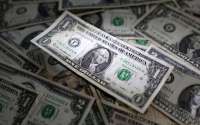WALL STREET - NEW YORK. Wall Street slumped on Monday and futures pointed to more losses to come after a fall in China's yuan currency and U.S. President Donald Trump's vow to impose additional tariffs on Chinese goods sparked an escalation of the U.S.-China trade war.
S&P 500 futures late in the day dropped over 1% after the United States officially designated China a currency manipulator, sharply escalating the ongoing dispute between the world's two largest economies.
U.S. Treasury Secretary Steven Mnuchin said in a statement that Washington will engage with the International Monetary Fund to eliminate unfair competition from Beijing.
During Monday's session, the benchmark S&P 500 slid about 3% to mark its biggest one-day percentage decline since Dec. 4. That slump amounted to a $766 billion loss on paper for the index, according to Refinitiv data.
Read Also: Japan signals it will act to curb any excessive yen rises
The S&P 500 has fallen for six consecutive sessions and is now about 6% below its record closing high on July 26.
The drop in S&P 500 futures late on Monday suggests investors expect Wall Street to open with more losses on Tuesday.
The yuan weakened past the key seven-per-dollar level to its lowest level in 11 years, after the People's Bank of China, with the blessing of policymakers in Beijing, set its daily midpoint at the weakest level in eight months.
Trump on Monday called the weakening of the yuan a "major violation," and "currency manipulation" on Twitter.
Read Also: China warns of retaliation after Trump threatens fresh tariffs
Several investors viewed the move in the Chinese currency as a direct response to Trump's announcement of 10% tariffs on an additional $300 billion of imports from China.
"It's the escalation of the trade war," said Steven DeSanctis, equity strategist at Jefferies in New York. "The dollar strengthening presents another issue. For companies that do a lot of business outside the U.S., it all adds up."
A weaker yuan and a stronger dollar pose challenges for U.S. companies that do substantial business in China by effectively raising the cost of their goods for Chinese customers.
Adding to the tensions, China's Commerce Ministry said Chinese companies have stopped buying U.S. agricultural products and that Beijing will not rule out imposing import tariffs on U.S. farm products that were bought after Aug. 3.
Shares of S&P 500 technology companies, which are heavily exposed to Chinese markets, dropped 4.1%.
Apple Inc shares slid 5.2% as analysts warned that the newly proposed tariffs may hurt demand for the iPhone, while the Philadelphia semiconductor index dropped 4.4%.
Stocks could slide further if there are no signs of improvement in U.S.-China trade relations before September, when the recently announced tariffs are to take effect, said Keith Lerner, chief market strategist at SunTrust Advisory Services in Atlanta.
"There's a little bit of a vacuum in the market for the next several weeks," he said. "We're in this corrective phase, and it likely has further to go."
Read Also: Stocks on weakest run in over 3 years as U.S.-China trade woes deepen
The Dow Jones Industrial Average fell 767.27 points, or 2.9%, to 25,717.74, the S&P 500 lost 87.31 points, or 2.98%, to 2,844.74 and the Nasdaq Composite dropped 278.03 points, or 3.47%, to 7,726.04.
The Cboe Volatility Index, or VIX, an options-based gauge of investor anxiety, rose 6.98 points to 24.59, its highest in about seven months.
No. 1 U.S. meat processor Tyson Foods Inc provided a bright spot as its shares rose 5.1% after the company beat quarterly profit estimates.
Declining issues outnumbered advancing ones on the NYSE by a 6.36-to-1 ratio; on Nasdaq, a 6.46-to-1 ratio favored decliners.
The S&P 500 posted three new 52-week highs and 32 new lows; the Nasdaq Composite recorded 13 new highs and 280 new lows.
Volume on U.S. exchanges was 9.41 billion shares, compared with the 6.8 billion average for the full session over the last 20 trading days.
/2019/08/01/1457185511p.jpg)









